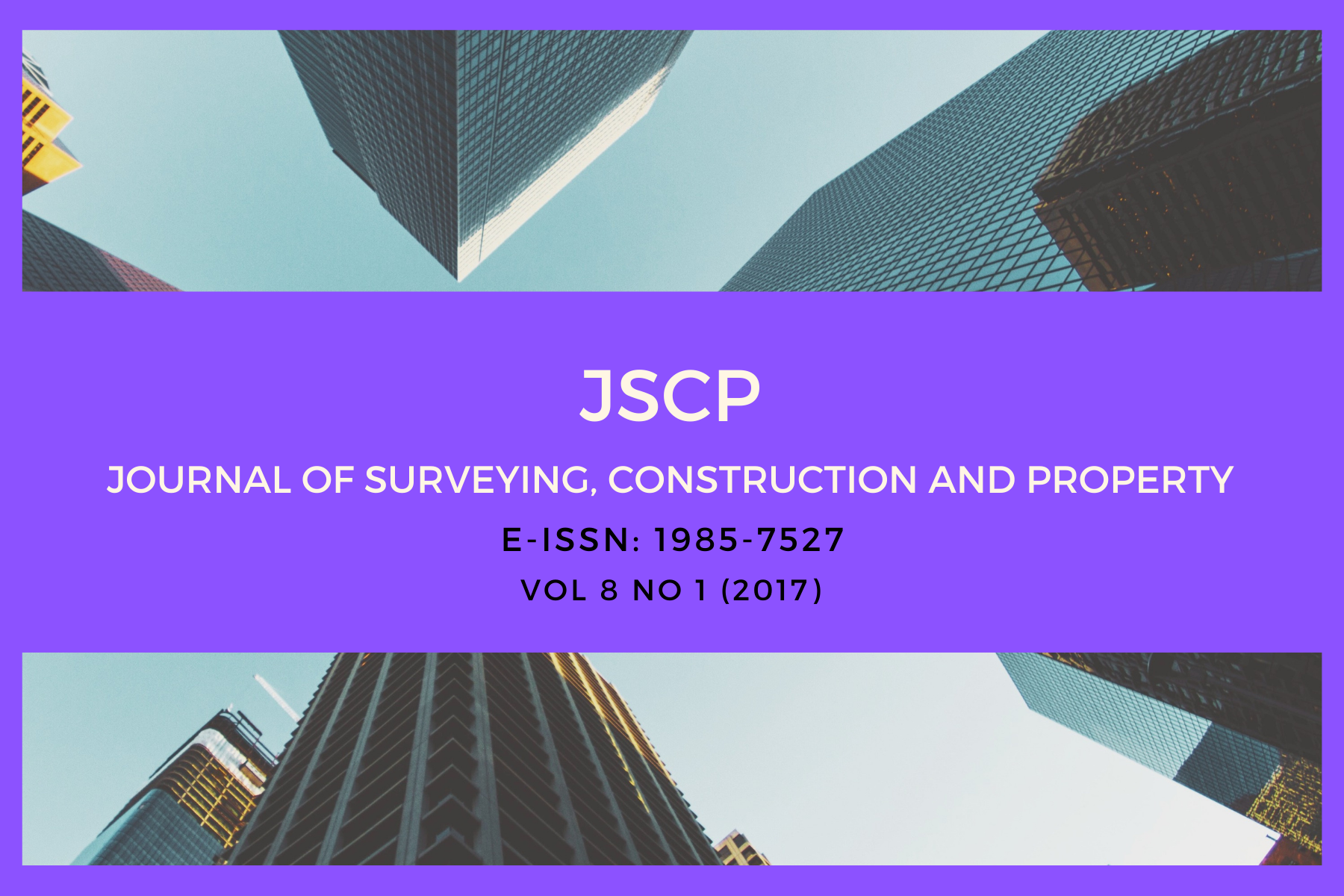Subsidising the Cost of Land for Low Income Housing: Some Evidence from Jos, Nigeria
DOI:
https://doi.org/10.22452/jscp.vol8no1.5Keywords:
Land Use Policy,, Subsidies,, Low-income housing,, Jos,, NigeriaAbstract
This study aims to examine the variables that influence the application of land and infrastructure subsidy for low-income housing provision in the city of Jos, Nigeria. Data was collected by conducting interviews with the representatives of the relevant government agencies and those of the house building companies. This was transcribed and examined alongside documentary evidences. The analysis was conducted in line with the study’s objectives: The first was to examine how the policy for subsidising the cost of land applies in the local context in Jos. The data examined in connection to this objective suggest that there is an absence of a uniform approach to the application of the subsidy policy by the three tiers—federal, state and local—of government. The approaches adopted by the federal and state government agencies were seen not to be effective in supplying the subsidies needed by private developers. The second objective was interested in scrutinising the variables influencing the arrangement for subsidising the cost of land in Jos. The data analysed confirms that the lack of proper understanding of land subsidy policy among government officials, the absence of political will on the part of State and Federal government agencies, the absence of transparency and accountability on the part of government officials, the absence of legislation in support of the subsidy policy, and bureaucratic constraints were the key variables influencing the subsidy arrangement in Jos. These findings were examined and some recommendations were proffered.
Downloads
Downloads
Published
How to Cite
Issue
Section
License
COPYRIGHT: All rights reserved. No part of this journal may be reproduced, copied, or transmitted in any form or by any means—electronic, mechanical, photocopying, recording, or otherwise without proper written permission from the publisher. Any opinions expressed in the articles are those of the authors and do not necessarily reflect the views of the Universiti Malaya, 50603 Kuala Lumpur, Malaysia.







